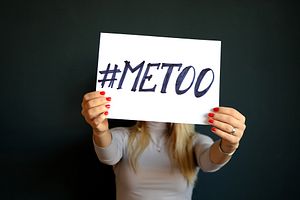Across social media worldwide, there is a growing flurry of lists of men across various industries who have crossed the line in their professional positions by sexually harassing women. The investigation that outed Hollywood’s Harvey Weinstein has blown off the lid of men like him seemingly everywhere, even as the victims continue to worry about repercussions, and hence choose to stay silent.
One such list of 60 academics from across India, posted on Facebook by California-based law student Raya Sarkar, has rattled the academic community and liberals in the country. (Sarkar has since deactivated her Facebook account.) The list claims to warn new students against these professors. No details of the nature of the harassment were attached to their names, and the accusers chose not to reveal themselves.
This list has divided India’s feminists. Motives have been questioned, and so have allegiances. The mention of needing to follow “due process” in an open dismissal of the list by 12 of India’s prominent feminists further shattered the fissures; women defending the list highlighted online how the lack of due process has in effect led scores of women to stay silent, lest speaking out would impact their lives and careers. A recent video of Hollywood actor Uma Thurman stating that she has to choose her words of anger carefully has gone viral — essentially because it exemplifies what women have known too long, that speaking up comes at a steep price.
But what could have been a marked moment of building solidarity across politics – in the case of India, across class, caste, and age groups – has instead sadly been mired with aspersions being cast against each other. As new perspectives are being doled out, some of those who found their names on the list have also shot back, seeking explanations of their possibly errant behaviors. There are questions being raised about “trials by social media,” while questions equally arise about the lack of processes at institutions that women could trust.
The list may have been prompted by a detailed essay penned by Georgetown University’s Professor C. Christine Fair, a scholar of South Asia. But instead of probing the complaints, accusations of selective politics have unfortunately taken precedence over the wounds that women across all cross-sections – whether they defend or defy the list – have suffered. Even among activists themselves, patriarchal actions and abuses seem to be a widely ignored secret — a necessity in the name of fighting for the “big cause.”
That the misogyny is entrenched is evident in the way that women are wondering why the testimonies of men, who are victims of actor Kevin Spacey’s sexual harassment, seem to be taken more seriously than the long battle by women to have their testimonies heard, believed, and acted upon.
However, the anger among feminists toward each other, as seen in the ongoing debate in India, would be better directed at fighting off the misogynist battles and bringing down the men who walk free. Where are those spaces of listening and sharing, where women would hold space for one another? Battles fought online allow for acrimony to fly faster than words of support and solidarity. Which is why, even as online petitions could enable international solidarity groups to pressure for change, the need for real-time conversations that flesh out the nuances of movements seems ever-more urgent.
While the liberation sought by one woman who chooses to anonymously reveal the name of her perpetrator may not go down well with another feminist who seeks liberation by fighting uphill battles to ensure processes of law are gender-sensitive, the essence of liberation from misogyny and patriarchy through the non-linear and broad spectrum of feminism has to be recognized and accepted, so that the deep wounds and scars that almost every woman may have suffered are healed together in solidarity with other women.
































